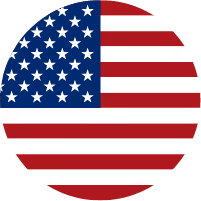Common Causes of Uber and Lyft Car Accidents
Car accidents are all-too-frequent in places where people must commute to work, shop, eat, and basically live. According to DriverKnowledge, of the car accidents which occur yearly, approximately 6% result in fatality, 27% in non-fatality injury, and 72% involve property damage.
Statistically, if you spend a regular amount of time in cars (daily, weekly, monthly), you’re bound to be in an accident eventually. What are the most common causes of these accidents?
- Distracted driving: This is especially true in rideshare scenarios, because every new passenger is an unknown entity, and every turn of a corner may lead down an unpredictable road. Drivers may need to look at their phone for navigation, or discuss routes with the passenger while driving, both of which distract him or her from the road.
- Speeding: Because rideshare drivers are on the clock, they may be pressed for time and willing to speed past the legal limit. Likewise, a passenger in a rush may insist that their driver go as fast as possible. Either scenario may lead to running stop signs or traffic lights, tailgating, or unsafe lane changes (three major causes of accidents on their own).
- Driver fatigue: A driver may meet someone chatty, then someone hostile, then someone with a kid or a pet, two rude people at once, someone drunk, someone reading a book, and then you. They may have been driving for hours already and aren’t in top condition to keep going. Driving for Lyft or Uber may be their second job after a full day of work somewhere else. Or it may be late at night, and a yawn at an inopportune moment may result in a crash.
- Failure to maintain proper vehicle standards: A car with bad brakes, cracked windshield wipers, or low fluids could lead to dangerous, preventable accidents.
- Environmental conditions: Even a car and driver in perfect sync and working order can’t always beat bad weather. Rain, snow, ice, hail, high winds, floods, fires, bad roads/bridges, falling rocks, or animal interference could all cause accidents.
Like train conductors and bus drivers, rideshare drivers are considered common carriers, which means they have a higher duty of care when driving passengers around. Many drivers take this responsibility seriously, and are only involved in an accident when the circumstances are outside of their control.
However, should a driver not exhibit the care owed, any resulting crash could be deemed their fault, and the fault of the rideshare company that hired them.
But sometimes it doesn’t matter what’s done inside a rideshare vehicle, it matters what another car on the road does. Who needs a lawyer then? Read on to find out who exactly should call an Uber or Lyft car accident attorney.
Who Needs an Uber or Lyft Car Accident Attorney?
Regardless of who may be at fault, it is important to protect yourself with trusted legal counsel when dealing with large companies after a car accident. Similar to those involved in commercial trucking accidents, individuals involved in these types of vehicular collisions may find themselves caught between insurance companies and business interests. It’s an intimidating and potentially dangerous place to be.
Those who may need an Uber or Lyft car accident lawyer include:
- Uber/Lyft passengers: You thought you could buckle up and kick back on your ride to the airport, downtown, or home, but your driver and another party have had an accident. You may be rattled, late, or worse yet, severely injured. Talk to a lawyer to make sure you’re covered by the rideshare insurance, and compensated for your specific recovery needs.
- Rideshare drivers: While you may be fully aware of the rideshare coverage offered by Uber or Lyft insurance, extenuating circumstances may leave you unguarded. Not only might you be seriously injured, you may also be out of a job until your car can be repaired or replaced. An Uber or Lyft accident attorney can quickly inform you about what kind of coverage you can expect, and whether it’s enough for what you’ll need.
- Impacted drivers and passengers: If you’ve been in a car impacted by a collision with a rideshare vehicle, it’s different than just dealing with another civilian driver. There are company interests behind the driver of the other vehicle, and possibly extra responsibility on their part as well to be a more professional driver. Contacting an attorney as soon as possible means you also have representation on your side.
- Pedestrians: Not everyone involved in Uber or Lyft accidents is a driver or passenger. If you’ve had a run-in with any car as a pedestrian, you are much more vulnerable to injury and exploitation (they’re insured to drive, but you’re not insured to walk). Calling a lawyer to explain your situation is free, and can help make sure you’re not written off just because there’s no company on your side.
If you’re unsure whether you need a lawyer, the quickest way to find out is to call and ask. Beginning a conversation with the office of Osborne & Francis today could mean you’re ultimately protected by an experienced attorney who can calm your fears, foresee certain issues before they become problems, and help make sure you’re able to access the support you require for repairs and/or recovery.
Should a driver not exhibit the care owed, any resulting crash could be deemed their fault, and the fault of the rideshare company that hired them.
What a Settlement From a Car Accident Lawsuit Could Mean For You
The U.S. Department of Transportation’s Fatality Analysis Reporting System (FARS) accounts for the yearly statistics involving vehicle crash types and fatalities. It is well-known that car accidents have the potential to be emotionally traumatizing, physically damaging, or even fatal. They are serious events, and are considered as such in a legal arena.
Should it be determined that your crash was caused by someone else’s mistake, wrongdoing, or negligence, the damages award could include:
- Medical bills: This could include hospital visits, surgeries, follow-up care, mobility aids (if needed), physical and psychological therapy, as well as medications.
- Property costs: For your vehicle, the belongings inside of your vehicle, and any damages done to your clothes or the belongings of your passengers.
- Lost income/potential earnings: Days off from work, vacation/sick time eaten up in dealing with the accident, lost job opportunities, lost contracts for freelancers, and in some cases lost potential earnings (such as in cases of lost employment or wrongful death).
- Pain, suffering, and diminished quality of life: Restitution for the physical pain, emotional stress, and lingering effects of the incident, such as a limp in cases of knee injury or PTSD in cases of psychological harm.
- Punitive damages: These are damages issued if the cause of the accident is found to be wrongdoing or negligence. They are levied as punishment against the persons or companies (like Lyft or Uber) which acted badly. These funds may be awarded to you on top of the other amounts required to compensate for your injuries and suffering.
There is more to be accounted for than what insurance companies usually provide after a car accident. Call the offices of Osborne & Francis at (561) 293-2600 to discuss your specific case and the best way to handle it going forward.

.avif)

















.avif)


